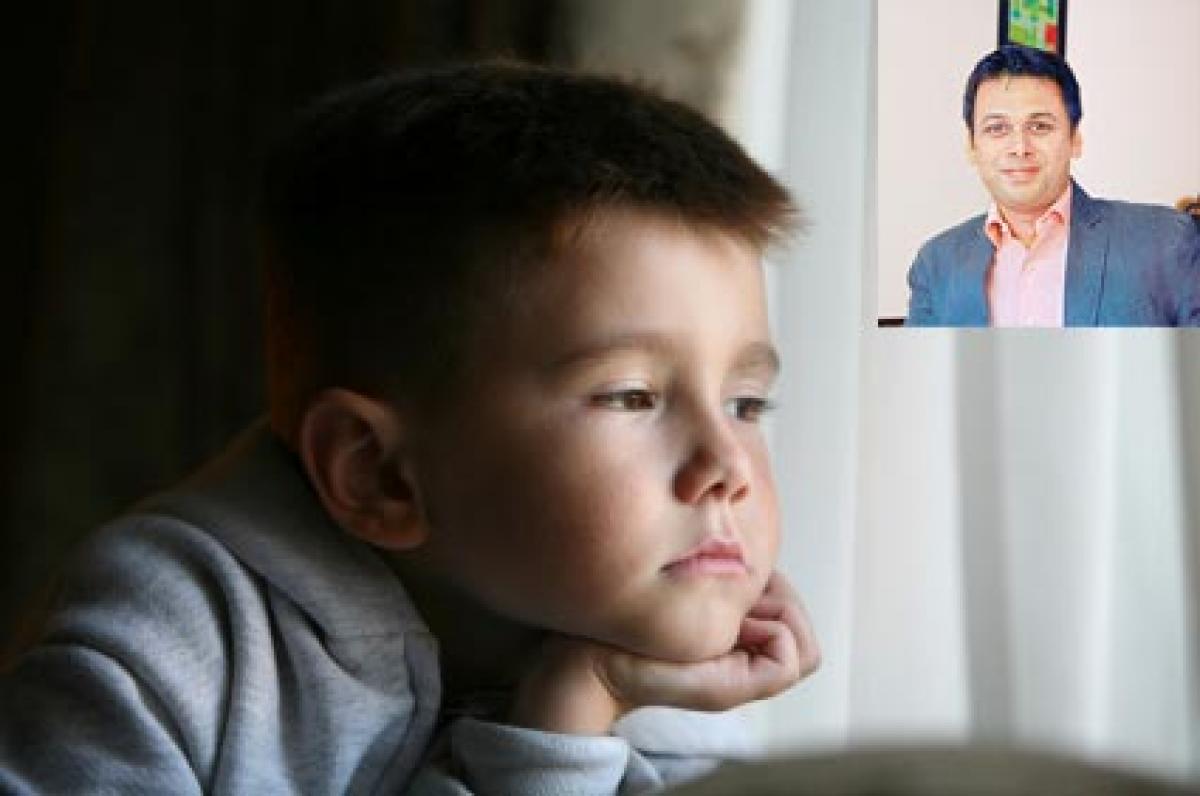Live
- Additional Collector Conducts Surprise Visit to Boys' Hostel in Wanaparthy
- Punjab hikes maximum state-agreed price for sugarcane, highest in country
- Centre okays PAN 2.0 project worth Rs 1,435 crore to transform taxpayer registration
- Punjab minister opens development projects of Rs 120 crore in Ludhiana
- Cabinet approves Atal Innovation Mission 2.0 with Rs 2,750 crore outlay
- Centre okays Rs 3,689cr investment for 2 hydro electric projects in Arunachal
- IPL 2025 Auction: 13-year-old Vaibhav Suryavanshi becomes youngest player to be signed in tournament's history
- About 62 lakh foreign tourists arrived in India in 8 months this year: Govt
- IPL 2025 Auction: Gujarat bag Sherfane Rutherford for Rs 2.60 cr; Kolkata grab Manish Pandey for Rs 75 lakh
- Assam CM meets Governor, cabinet expansion on the cards
Just In

It is believed that only physical issues which interfere with one’s day-to-day functioning need to be addressed, psychological issues are just brushed away with excuses like ‘It’s OK, she will grow out of it’. Secondly, parents are not aware that depression can affect anybody and not just adults.So how to do you as a parent
When I was in school I had a classmate who would sleep through the classes, had no friends, wouldn’t talk to anyone and kept to herself. The times when she was not sleeping through the classes, she would just be blankly staring into her books. The teachers never paid much attention to her behaviour and mostly left her to herself. We, her classmates, would mostly be busy teasing her and never really thought of trying to help her. Today, when I look back, the girl was clearlydepressed and needed help, rather than being ignored and left alone. Depression in children is common but is usually left undetected. This is majorly because of two main reasons; firstly psychological issues are not paid heed to in the Indian society.
It is believed that only physical issues which interfere with one’s day-to-day functioning need to be addressed, psychological issues are just brushed away with excuses like ‘It’s OK, she will grow out of it’. Secondly, parents are not aware that depression can affect anybody and not just adults.So how to do you as a parent check whether your child is depressed or not? Well, below is a list of behavioural changes your child might exhibit if she is going through depression:S She might be crankier than usual and exhibit mood swings. She might get angry or cry easily and often. S She no longer enjoys hobbies or activities that she used to love earlier.
S You may notice a change in her eating and sleeping habits. She may either start eating or sleeping too less or a lot more than normal. This could also lead to a change in her body weight making her thinner or fatter and more lethargic as well. S She keeps to herself and doesn’t interact with people she used to enjoy being with earlier.
S She might exhibit low self-esteem and less interest in going to school or doing school-related activities. As a parent it is very difficult to see one’s child suffering from depression, but it is important that you stay strong so that you may act as your child’s pillar of strength. Let us see how as a parent you can help your child fight her battle against depression.Be Patient It is a very important aspect of dealing with a depressed child. Losing your cool will not help. If you display patience and understanding it will encourage your child to do the same. Being patient though might not be easy; hence, you may try individual or family therapy to help you deal with the situation.
Read It is very important for you to stay on top of things and be well informed about the ‘what’ and ‘how’ of depression. It is important that you understand that your child is suffering from a disease and it is not a tantrum or a phase. Let your child know that it is not her fault, it is OK to be depressed, and it is just a disease that can be cured.
Stay Strong Seeing you strong will help your child draw strength as well. A good doctor benefits all but understanding and supportive parents are crucial for a child’s recovering from depression. Talk Talk to your child. Children suffering from depression shy away from talking, therefore, it is important that you engage your child in simple activities, such as cooking together or taking a walk, which might give you a chance to engage in a small conversation with her.
Also, talk to her about her thoughts towards suicide, do not shy away thinking that you might put the thought in her head. Talking about it will let you know if your child has suicidal tendencies; it will also help the child understand that it is OK to talk about such feelings if they ever want to. Socialise Encourage your child to socialise. Depression generally draws children into their shells and this in turn prevents them from socialising.
It is important that you encourage your child to fight this and actively socialise. Therapy Lastly, it is important that you encourage your child to take therapy. Therapy will benefit a depressed child greatly as it will equip her with how she can fight and overcome depression. It will also help you stay up-to-date about your child’s mental health status. Also, ensure that the child’s doctor or therapist is knowledgeable and caring alongside ensuring that your child is meeting all the scheduled appointments and taking the required medication, if needed.
(The writer is Research Head, Zee Learn Ltd)

© 2024 Hyderabad Media House Limited/The Hans India. All rights reserved. Powered by hocalwire.com







